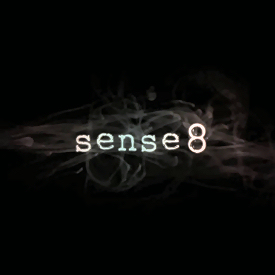
Definition: sen·sate: sen,sāt/
adjective
literary
1. perceiving or perceived by the senses.
“you are immersed in an illusory, yet sensate, world”
It used to be—with some notable exceptions: X-Files (it’s coming back, folks! Hooray!) and Twin Peaks (also on its way back!) being two fairly recent examples—that TV offered little thoughtful SF or fantasy; the majority being somewhat (and yes, this is a sweeping exaggeration) of the calibre of The Incredible Hulk or the original Battlestar Galactica. With the advent of non-network original TV series, such as Game of Thrones or Daredevil, TV is apparently coming into its own as a purveyor of thoughtful and/or original SF and fantasy. (Let’s not get into an argument over GoT, please—some intelligent people have called it “violence porn” and even worse things; what I’m stating in this column is my sole opinion! You may not like the things I like; you may disagree, saying that such series are neither thoughtful or original, whether based on books or comics or made up out of whole cloth. This column is intended to give you food for thought and/or a recommendation for something I either like or dislike. Whether you respect my opinion or not is up to you. Besides, I’ve already had enough arguments about GoT on Facebook, thank you very much!)
Anyway, there’s a new kid in town, brought to you as a whole season (like another series of theirs, Daredevil) by Netflix. It premiered this week, and it is an original—as far as I know—series, not beholden to any book, comic or other material, created and written by The Wachowskis, Lana and Andy (who wrote and directed the Matrix trilogy as a high point, and Jupiter Ascending as a more recent low point, IMO) and co-written by J. Michael Straczinski, auteur of the well-respected TV series Babylon 5. Like Netflix’s Daredevil, the whole season has been posted at once, which is terrific for binge-watching, but absolutely annoying if you get sucked into the series and have to wait for the next season (how long will the wait be? I dunno!) I’ll give you a capsule review and then some talk about it which will include spoilers. Which you read is up to you.
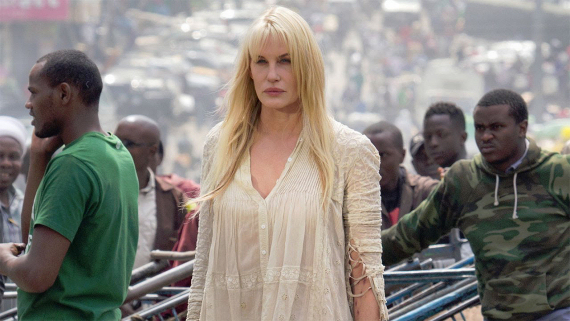
Capsule review of Sense8: To be fair, I didn’t expect a lot out of this series; I never got into Babylon 5 for various reasons, and I was sorely disappointed by The Wachowskis’ recent SFX-laden Jupiter Ascending. (I think it was intended as “space opera,” but somehow it never quite came off for me. Give me an over-the-top slapstick Guardians of the Galaxy any day!) Anyway, mainly because of the first Matrix movie, I was willing to give this a try. Without any exposition—which can be a good thing—the first episode tells the story of eight people, scattered across the globe, who experience a mysterious “connection” with each other, which is both confusing and, apparently, dangerous. In the beginning, we see Darryl Hannah’s character, Angel (Figure 2), sitting on a mattress in a broken-down and deserted church; after some conversation with a couple of characters who may or may not be actually there, she puts the barrel of a revolver into her mouth and blows her brains out! This is apparently the spark, or “birth,” of a cluster, we learn later of eight people who are sensate, or linked together. There are Will Gorski (Brian J. Smith), a Chicago cop; also Lito Rodriguez (Miguel Ángel Silvestre), a famous movie actor and “hunk” in Mexico City; Sun Bak (Doona Bae) in Seoul, who works at her father’s company (doing what, we never really learn); in Nairobi, we meet the driver of the “Van Damn Bus,” Capheus, played by Ami Ameen; we go to Berlin to see Wolfgang (last name unknown), a locksmith and safecracker (Max Riemelt); in San Francisco we meet Nomi Marks (Jamie Clayton), who’s a proud lesbian hacker; in Mumbai we meet Kala Rasal (Tina Desai), a scientist who worships Ganesha, the elephant-headed god, but who is about to marry the son of a non-believer; and finally, in London, we meet DJ Riley Blue (whose real name is, believe it or not, Tuppence Middleton), from Reykjavik, Iceland.
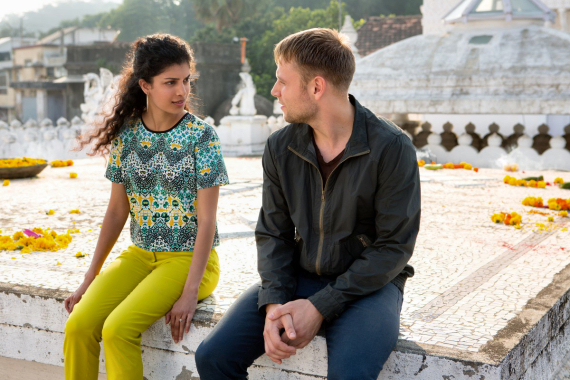
As we learn about each character in the cluster, we learn (at the same time they do) that they can see and hear each other remotely; when they see other cluster members it appears to an outsider that they are talking to or reacting to thin air. Each of the cluster members is at some kind of crucial point in their lives: Wolfgang and his best friend Felix are about to carry off an “impossible” diamond theft from an “unbreakable” safe; Kala, as I’ve said, is about to marry a man she doesn’t love; Nomi is being threatened with a brain operation she doesn’t want and which may, in fact, lobotomize her; Will is being ostracized by his fellow police for saving the life of a gunshot young black street person, and so on. Each one needs—whether they know it or not—the help of the other cluster members, either singly or in a group. Although the first episode tries too hard to get all that into one long episode, I think that deciding to continue is well worth your time. There is a mysterious man, Jonas, who can contact some cluster members despite not being part of the cluster; there is another man, called Whispers, who is out to apparently destroy the cluster, and he has government backing.
However…
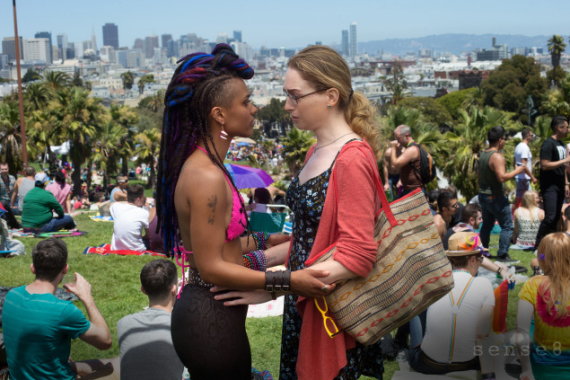
Where some people might accuse Game of Thrones as being rape and violence-prone, others have accused this series of having an agenda—this one possibly being an anti-homophobia one. We learn that there are several gay characters—Nomi is one; the uber-macho Lito has a secret lover, Hernando—and there is a lot of fairly explicit sex. People who don’t like seeing two men kiss—deeply—or women getting it on with the use of, um, “strap-on tools,” may not enjoy watching this. Some of the IMDB comments are fairly ignorant, in my opinion. (In my opinion, watching this whole season would be a fairly good litmus test of your tolerance for other people’s rights and ways. If you have any overt or hidden homophobia, this might expose it. Personally, although I’m what they call a “cisgendered straight white male,” I found that after a few episodes I literally didn’t feel anything but happiness at other people’s happiness. My dad was so—and this is how he was raised—homophobic that he never, until he was very old, ever hugged me. Men don’t touch other men (except to, y’know, punch each others’ shoulders and like that), I was taught. Your mileage may vary, as they say.

Verdict? I liked it. Yes, there is some fairly explicit violence in the series, and a lot more fairly explicit homoerotica, but I think it’s all in service of story and character. There is a lot more character to be explored, even after 12 episodes. I will be watching Season 2. (Besides which, I practically adored all the main actors; from Miguel Hernandez as Lito to (especially) Ami Ameen as Caphias; and Tina Desai (as Kala) is downright gorgeous! The only actor I think who needs to grow a bit in her role is Tuppence Middleton, as Riley. Although they gave her a heartrending backstory, I didn’t quite buy her, and I’m not sure why. Is it because she’s—except for her backstory—kind of a lightweight character? I haven’t quite figured it out.
Possible Spoilers here (Skip this, if you don’t want to know anything that wasn’t in the first episode):
Each character, except for Riley, seems to have something physical to contribute to the group: Lito can not only act—which helps Wolfgang stay alive at one point—but can also do some physical stunts thanks to his movie career; Sun has a secret life of her own—she’s a trained martial artist and takes her frustrations out by getting in the ring with unsuspecting male fighters (“The smart money’s on the skinny bitch,” one fighter’s handler tells him); Kala’s knowledge of science comes in handy at one or two points as a lifesaving aid and so on. But we find out that before she moved to London, Riley was married, with a husband and a newborn child, and lost them both in a car crash one Icelandic winter. We don’t know, at least until the end of the season, what—besides being Will’s heartthrob—she will contribute to the cluster. (As it turns out, Whispers, the mysterious doctor trying to destroy them, can get into any cluster member’s head, permanently, if you see his eyes, and Will accidentally does just that. Riley saves him and, by extension, the cluster, by helping him escape from Iceland.)
Each of the cluster members has something to learn from the others; I think that, after a few more episodes, they are going to form a Theodore Sturgeon-like gestalt in the best sense. (See the book More than Human, available from Amazon. One of my all-time favourite books, by the way.) Although the clusters—according to Jonas, who may or may not be a good guy after all—have been around since the dawn of time, they may be either the next step in evolution, or they may be the true humans, while we poor souls, locked into our own skulls, are an evolutionary dead end. (“They’re very good at one thing,” Jonas tells Will, “and that’s killing,” referring to us.)
The season ends with Will and Riley escaping Iceland on a boat—surrounded by the other cluster members—and as the camera pulls back, you see that the other cluster members are not physically there, but the cluster is, at least for that moment, whole.
End of possible spoilers.
The opening title montage, encompassing as it does people in San Francisco, Iceland, Germany, India, London and so on, plus volcanoes, rainbows, zebras and other natural things, is in itself a wonderful statement about the variety not only of our world, but of our people. Whether they’re celebrating the Ganesha Festival in Mumbai, the Day of the Dead in Mexico City, or Pride in San Francisco, people are just as colourful and wonderful—in all their variety—as anything else the world has to offer. And that—despite the fact that we’re all locked into our own skulls—gives me hope for humanity.
Please comment on this week’s column. I don’t care if it’s here (although my editor would be happier if it is) or on my Facebook page, or in the several Facebook groups where I publish a link to it. I might not agree with your comments, but they’re all welcome. I’m always ready to learn something. And don’t feel you have to agree with me to post a comment; my opinion is, as always, my own, and doesn’t necessarily reflect the views of Amazing Stories or its owners, editors, publishers or other bloggers. See you next week (as my pappy used to say, “God willin’ and the crick don’t rise!”)! (Okay, he never actually said that. See ya!)


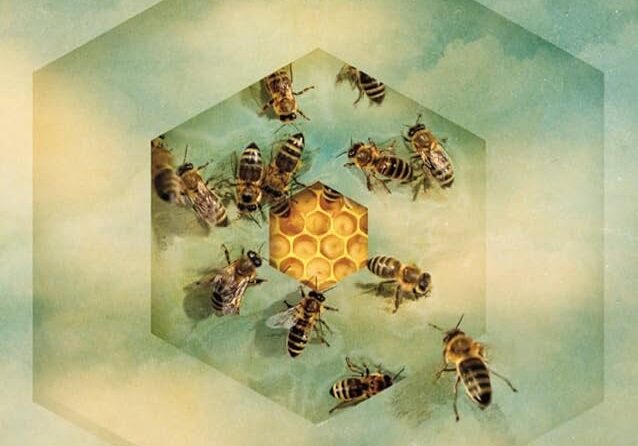
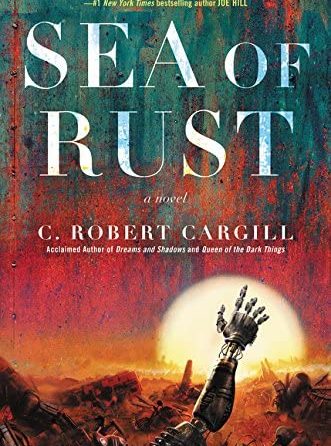

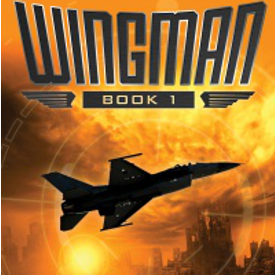
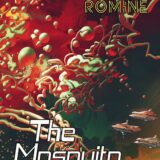




Thanks for your take on this, Steve a great summation of the series.
My only issues with it were that most of these characters all seemed to have had extreme trauma in their lives; all except Lito who never had his back story told. But then his thing was to pretend to be straight so he could get movie parts – even that sounds purposely contrived. The other thing was that most of them couldn’t act their way out of a paper bag thankfully the story premise and a few others made the bad acting tolerable.
Although the premise of the show has its merits as do the locations, it was how they worked together like a single specialized individual with 7 unique personalities in the end that made the last few episodes quite enjoyable. And who knows maybe Riley thing is subtle differences and helped Wolfgang with those pesky unbreakable-safe tumblers I can’t remember on that.
Glad I watched it though, cheers!
Thanks for you take on this, Steve a great summation of the series.
My only issues with it were that most of these characters all seemed to have had extreme trauma in their lives; all except Lito who never had his back story told. But then his thing was to pretend to be straight so he could get movie parts – even that sounds purposely contrived. The other thing was that most of them couldn’t act their way out of a paper bag thankfully the story premise and a few others made the bad acting tolerable.
Although the premise of the show has its merits as do the locations, it was how they worked together like a single specialized individual with 7 unique personalities in the end that made the last few episodes quite enjoyable. And who knows maybe Riley thing is subtle differences and helped Wolfgang with those pesky unbreakable-safe tumblers I can’t remember on that.
Glad I watched it though, cheers!